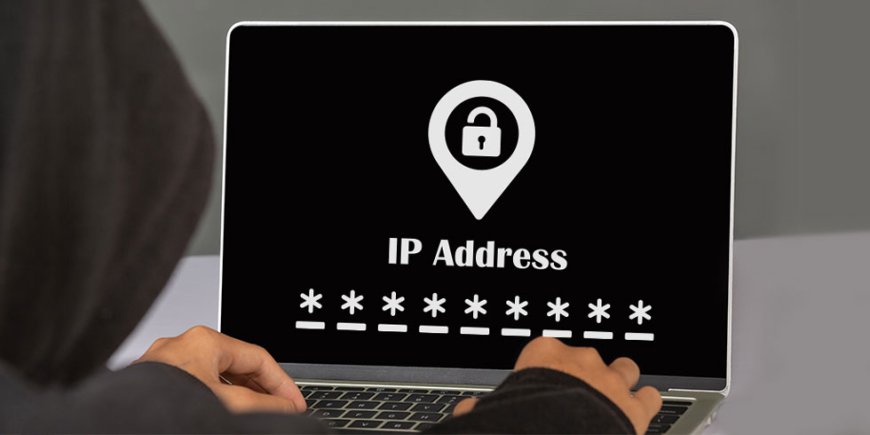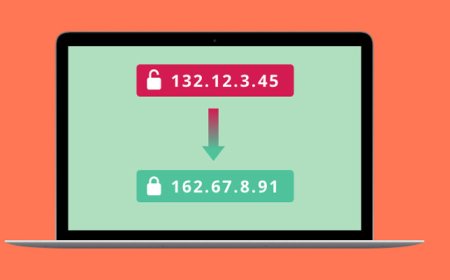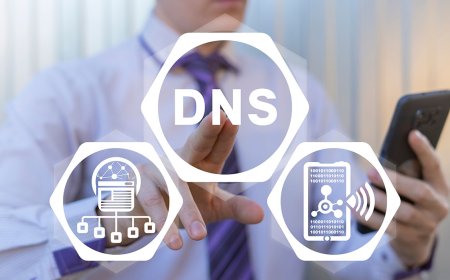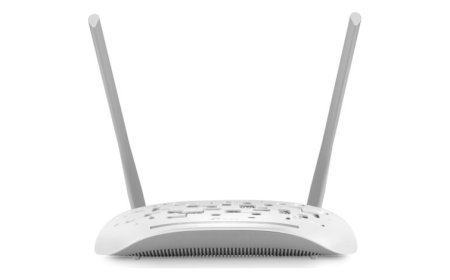Hide IP Address
In today’s age of constant internet connectivity, it’s essential to protect your online privacy. One way to safeguard your identity and data is by hiding ...

In today’s age of constant internet connectivity, it’s essential to protect your online privacy. One way to safeguard your identity and data is by hiding your IP address. Your IP address is a unique identifier that reveals your location and other personal information to websites and third parties.
There are various reasons why you might want to hide your IP address. For instance, you may want to access geo-restricted content or protect your sensitive data from prying eyes. Thankfully, hiding your IP address is relatively easy and can be done in several ways.
One common method is by using a virtual private network (VPN). A VPN encrypts your internet traffic and routes it through a remote server, masking your IP address. As a result, you can browse the web anonymously and securely. However, it’s crucial to choose a reputable VPN provider that doesn’t log your activities or compromise your privacy.
Another way to hide your IP address is by using a proxy server. A proxy server acts as an intermediary between your device and the internet, changing your IP address and making it appear as if you’re accessing the web from a different location. However, not all proxy servers are secure, and some may even inject malware or spyware into your system.
You can also use Tor, a free and open-source software that anonymizes your internet connection by bouncing your traffic across multiple nodes. While Tor provides robust anonymity, it can slow down your internet speeds and isn’t suitable for bandwidth-intensive activities such as streaming or gaming.
In conclusion, hiding your IP address is crucial for protecting your online privacy and security. Whether you use a VPN, proxy server, or Tor, make sure to choose a reliable and trustworthy service that doesn’t compromise your data or expose you to cyber threats. Remember, your online privacy is in your hands.
Methods for Hiding Your IP Address
In today’s digital age, privacy and security have become a paramount concern. As we browse the internet, our IP address is a unique numerical identifier that reveals our location, device details, and other sensitive information to websites and online services. To protect your privacy and maintain anonymity while surfing the web, it is essential to hide your IP address. In this article, we’ll explore some effective methods for hiding your IP address.
Virtual Private Network (VPN): A VPN is a secure tunnel that encrypts all the data traffic between your device and the internet. It routes your internet traffic through a remote server of your choice, masking your IP address and providing you with enhanced privacy and security. VPNs are available as standalone software or browser extensions and offer various pricing plans based on your usage and needs.
Proxy Server: Proxy servers act as intermediaries between your device and the internet. They route your internet traffic through their own IP address, masking your original IP address. A proxy server can be configured on your device or set up as a browser extension. However, it’s important to note that not all proxy servers are secure, and some may even collect your browsing data.
Tor Browser: Tor (The Onion Router) is a free open-source software that allows you to surf the web anonymously by routing your internet traffic through multiple nodes across the globe. Each node decrypts a layer of encryption, making it difficult for anyone to trace your internet activity back to your device. However, Tor can be slow and may not work with all websites and online services.
Mobile Data: If you’re using a mobile device, you can switch from Wi-Fi to mobile data to change your IP address. This method works because mobile carriers use dynamic IP addresses that change every time you connect to the internet. However, this method may not provide complete privacy and security, as your mobile carrier can still track your internet activity.
In conclusion, there are several methods for hiding your IP address, each with its own advantages and disadvantages. It’s important to choose a method that suits your needs and provides adequate privacy and security while browsing the web. By taking these steps, you can protect your online identity and maintain anonymity on the internet.
Proxy Servers: An Effective Way to Hide Your IP Address
In the digital age, where everything is interconnected, privacy has become a major concern. Your IP address is like your digital identity and it’s essential to protect it from prying eyes. Proxy servers can provide an effective solution to this problem by hiding your IP address, making your online activities anonymous.
A proxy server is like a middleman between your device and the internet. When you send a request to access a website, the request is first sent to the proxy server. The server then forwards the request to the website on your behalf, and when the website responds, the proxy server sends the response back to your device. In the process, the website sees the IP address of the proxy server instead of your device’s IP address.
One of the most significant advantages of using a proxy server is that it provides anonymity. Since the website only sees the proxy server’s IP address, your own IP address remains hidden. This makes it difficult for anyone to track your online activities and gather personal information about you.
Another advantage of using a proxy server is that it can help you bypass geo-restrictions. Some websites are only accessible from specific regions or countries. If you happen to be in a location where the website is blocked, you can use a proxy server located in a region where the site is accessible to access it.
However, it’s important to note that not all proxy servers offer the same level of protection and privacy. Free proxy servers, for example, may not be reliable, and their connections may be slow or unstable. It’s essential to choose a reputable proxy provider that offers secure and fast connections.
In conclusion, proxy servers can be an effective way to hide your IP address and protect your online privacy. They provide anonymity and can help you bypass geo-restrictions. However, it’s crucial to choose a trustworthy provider to ensure that your connection is secure and reliable. By using a proxy server, you can enjoy a safer and more private online experience.
VPNs: The Ultimate Solution for Hiding Your IP Address
In today’s digital age, privacy concerns have become more pressing than ever. With the proliferation of online tracking and surveillance, it’s no wonder that many people are turning to virtual private networks (VPNs) as a solution for protecting their online privacy. VPNs can help you hide your IP address, making it difficult for others to track your online activity.
But what exactly is an IP address? Your IP address is a unique identifier that allows computers to communicate with one another over the internet. Every device connected to the internet has its own IP address, which can reveal information about your location and online activity.
By using a VPN, you can hide your IP address by connecting to a server located in a different country or region. This makes it appear as though you’re browsing the internet from a different location, providing an extra layer of protection against online tracking and surveillance.
In addition to hiding your IP address, VPNs can also encrypt your internet traffic, further enhancing your online privacy and security. This means that even if someone were able to intercept your internet traffic, they wouldn’t be able to see what you’re doing online.
But not all VPNs are created equal. When choosing a VPN provider, it’s important to choose one that is reliable and trustworthy. Look for a provider that offers strong encryption, a no-logging policy, and a large network of servers in various locations.
Overall, VPNs are a great solution for anyone looking to protect their online privacy and security. By hiding your IP address and encrypting your internet traffic, you can browse the internet confidently, knowing that your online activity is protected from prying eyes.
Tor: A Decentralized Network for Anonymous Browsing
Are you tired of being tracked online? Do you value your privacy and anonymity when browsing the internet? Look no further than Tor, a decentralized network that allows for anonymous browsing.
Tor, short for The Onion Router, is a free and open-source software that was originally developed by the US Navy to protect government communications. Now, it’s available for anyone who wants to use it. Tor works by encrypting and routing internet traffic through a series of nodes, making it difficult for anyone to trace the origin of the traffic.
One of the key features of Tor is its ability to hide your IP address, which is a unique identifier that can be used to track your online activity. When using Tor, your IP address is replaced with a random one from the Tor network, making it nearly impossible for anyone to identify you or your location.
But Tor isn’t just about hiding your identity. It also allows for access to websites that may be blocked in certain regions or by certain governments. This is because Tor has a built-in feature called onion services, which allows website operators to host websites anonymously on the Tor network.
Of course, there are some potential downsides to using Tor. Since your traffic is being routed through multiple nodes, it can sometimes be slower than regular browsing. Additionally, some websites may block traffic from the Tor network altogether.
Despite these drawbacks, Tor remains a powerful tool for those who value their privacy and anonymity online. It’s important to remember that while Tor can help protect your identity, it’s not a silver bullet. It’s still important to practice safe browsing habits and avoid sharing sensitive information online.
In conclusion, if you’re looking for a way to browse the internet anonymously and securely, Tor is a great option to consider. With its decentralized network and strong encryption, it offers a level of privacy that’s difficult to find elsewhere. So why not give it a try and see for yourself how Tor can help you take back control of your online identity?
Avoiding Common Mistakes When Hiding Your IP Address
When it comes to staying anonymous online, hiding your IP address is crucial. Your IP address is like a digital fingerprint that can be used to track your online activity and even your physical location. However, many people make common mistakes when attempting to hide their IP address, which can leave them vulnerable to being tracked. Here are some tips for avoiding these mistakes and keeping your online identity private.
One of the most common mistakes people make is relying solely on free proxy services or VPNs. While these services can help you hide your IP address, they often come with limitations, such as slow speeds or limited bandwidth. Additionally, free services may not be as secure as paid options, leaving you vulnerable to cyber attacks.
Another mistake people make is not properly configuring their VPN or proxy settings. It’s important to choose the right server location and protocol to ensure that your connection is both fast and secure. Additionally, make sure to regularly check your IP address to ensure that your connection is working properly.
Using a public Wi-Fi network is another mistake people make when trying to hide their IP address. Public networks are often unsecured, making it easy for hackers to intercept your data and track your online activity. If you must use public Wi-Fi, make sure to connect through a VPN or use a secure browser extension to encrypt your data.
Finally, failing to enable DNS leak protection is a common mistake that can compromise your privacy. DNS leaks can occur when your VPN or proxy fails to properly mask your IP address, allowing your ISP to see your online activity. Enabling DNS leak protection ensures that all of your online traffic is routed through the secure VPN or proxy connection.
In conclusion, hiding your IP address is an important step in protecting your online privacy. By avoiding these common mistakes and taking the necessary precautions, you can keep your online identity safe and secure. Remember to always use trusted VPN or proxy services, configure your settings properly, avoid public Wi-Fi networks, and enable DNS leak protection.
Conclusion and Final Thoughts on Hiding Your IP Address
As we come to the end of our discussion on hiding your IP address, it is important to summarize and reflect on what we have learned.
Firstly, why should you hide your IP address? Well, there are a few reasons. One is for privacy – if you don’t want websites or other users to see where you are located or track your online activities, then hiding your IP address is a smart move. Another reason is security – by concealing your IP address, you can reduce the risk of cyber attacks or malware infections.
So how can you hide your IP address? There are a few different methods. One is to use a Virtual Private Network (VPN), which encrypts your internet traffic and routes it through a remote server, masking your IP address in the process. Another option is to use a proxy server, which acts as an intermediary between your device and the internet, again concealing your IP address.
It’s worth noting that while hiding your IP address can offer some benefits, it’s not a foolproof solution. Some websites may still be able to detect your true location or identity through other means, such as browser fingerprinting. Additionally, if you’re using a free VPN or proxy service, there may be limitations on speed, bandwidth, or reliability.
In conclusion, hiding your IP address can be a useful tool for protecting your online privacy and security. However, it’s important to weigh the pros and cons and choose a reputable and reliable method for doing so. By staying informed and taking proactive steps to protect your digital footprint, you can enjoy a safer and more secure online experience.













